China, the United States, and
21st Century Sea Power |
Naval Institute Press
291 Wood Road
Annapolis, MD 21402
This eBook has been brought to publication with the generous assistance of Capt. Edward A. Studzinski, USNR (Ret.)
2010 by The United States Naval Institute
All rights reserved. No part of this book may be reproduced or utilized in any form or by any means, electronic or mechanical, including photocopying and recording, or by any information storage and retrieval system, without permission in writing from the publisher.
First Naval Institute Press eBook edition published 2012.
ISBN 978-1-61251-153-5
The Library of Congress has catalogued the hardcover edition as follows:
China, the United States, and 21st-Century Sea Power: defining a maritime security partnership / edited by Andrew S. Erickson, Lyle J. Goldstein, and Nan Li.
p. cm.
Includes bibliographical references and index.
1. Sea-powerHistory21st century. 2. Naval strategyHistory21st century. 3. United StatesMilitary relationsChina. 4. ChinaMilitary relationsUnited States. 5. United StatesHistory, Naval21st century. 6. ChinaHistory, Naval21st century. I. Erickson, Andrew S. II. Goldstein, Lyle. III. Li, Nan, 1956
V25.C45 2008
359.03dc22
2010022124
 This paper meets the requirements of ANSI/NISO z39.48-1992 (Permanence of Paper).
This paper meets the requirements of ANSI/NISO z39.48-1992 (Permanence of Paper).
19 18 17 16 15 14 13 129 8 7 6 5 4 3 2 1
Contents
Andrew S. Erickson and Lyle J. Goldstein |
. |
Zhuang Jianzhong |
Gabriel B. Collins |
David N. Griffiths |
. |
Andrew S. Erickson |
Paul J. Smith |
Lyle J. Goldstein |
Bernard Moreland |
. |
Guifang (Julia) Xue |
Peter A. Dutton |
Su Hao |
Eric A. McVadon |
Lyle J. Goldstein and William S. Murray |
Andrew S. Erickson |
. |
Michael J. Green |
Wu Shicun |
Zhu Huayou |
James R. Holmes and Toshi Yoshihara |
. |
Nan Li |
Andrew S. Erickson |
Yu Wanli |
Yang Yi |
Andrew S. Erickson and Lyle J. Goldstein
DURING JUNE 2009, four Peoples Liberation Army (PLA) Navy doctors flew to Tumaco, Colombia, to spend a week aboard the USNS Comfort, where they learned how the U.S. Navy promotes goodwill by delivering high quality and efficient medical care to parts of the world that are in need. No doubt this quite remarkable step in building a U.S.China maritime partnership was a direct result of the March 2009 visit to Qingdao by chief of naval operations (CNO) Admiral Gary Roughead, in which he participated in the sixtieth anniversary of the PLA Navy and toured its first purpose-built hospital ship, the Type 920 Daishandao/Peace Ark ( , AHH 866). CNO Rougheads visit, like that of the four PLA Navy doctors to USNS Comfort, suggests a strong commitment on both sides of the Pacific to seizing opportunities to share best practices and develop new areas for cooperation in support of global development and security. As the first of what will reportedly be annual international deployments, Peace Ark is slated to call on ports in the Middle East and Africa in 2010.
, AHH 866). CNO Rougheads visit, like that of the four PLA Navy doctors to USNS Comfort, suggests a strong commitment on both sides of the Pacific to seizing opportunities to share best practices and develop new areas for cooperation in support of global development and security. As the first of what will reportedly be annual international deployments, Peace Ark is slated to call on ports in the Middle East and Africa in 2010.
Nevertheless, CNO Rougheads attendance at the PLA Navys sixtieth anniversary celebrations was very nearly derailed by the Impeccable incident of 8 March 2009, in which a group of Chinese enforcement vessels and fishing trawlers harassed the surveillance ship USNS Impeccable then operating Rather than simple idealism, this approach signaled in fact a new realism: the understanding that global security now depends on a working partnership between the U.S. and Chinese armed forces. While such a partnership could have an impact on various aspects of global security, this partnership is especially crucial in the maritime realm, where both nations share a core interest in protecting the global maritime trading system. This volume is intended to be a guidebook for practitionersfor those charged with the difficult task of building and nurturing the nascent Sino-American maritime partnership, which is beset with challenges, yet holds enormous promise.
This book is the result of the U.S. Naval War Colleges China Maritime Studies Institutes third annual conference, Defining a Maritime Partnership with China, held in Newport, Rhode Island on 56 December 2007. The conference featured seven delegates from the Peoples Republic of China (PRC), who represented some of Chinas leading universities in the maritime domain. The Chinese delegation included PLA Navy rear admiral Yang Yi, then director of the Institute of Strategic Studies at Chinas National Defense University. American participants included representatives from the U.S. Pacific Fleet and other relevant fleet commands as well as the State Department and the Department of Homeland Security.
Despite recent turbulence in U.S.China military-to-military relations, conference participants reaffirmed that the United States and China have substantial shared interests that could enable extensive bilateral U.S.China maritime security cooperation. The goal of the conference was to foster dialogue between Chinese and American experts on potential areas of cooperation among our nations respective maritime services. Attendees agreed that a strong foundation for maritime partnership exists in the increasingly robust commercial relationship but that the military side of the partnership lags well behind. The conference focused on determining which areas might be fruitful for more extensive U.S.China maritime cooperation.
Conference Findings
The conference reached six major conclusions:
Economic cooperation provides a durable foundation for enhanced partnership between the United States and China on the worlds oceans since the health of the global system relies on secure and stable sea-lanes.
Although barriers still exist that prevent a robust U.S.-Chinese partnership to maintain security at sea, there has been some impressive success in creating new forms of collaboration in search and rescue as well as in fisheries enforcement.
Chinas cautiously positive reaction to the new U.S. Maritime Strategy suggests possibilities for expanding cooperation in humanitarian assistance and disaster relief operations, maritime environmental issues, energy security, counterterrorism, and professional military education (PME). Further discussions with respect to international legal authorities will be required to find ways to cooperate that take into account each countrys perspective.
Beijings growing capabilities and presence on the seas will make maritime collaboration and crisis management procedures with Washington both more feasible and more essential.
The sensitive Taiwan issue, differences over definitions and appropriate prioritization of transparency, and a paucity of mutual trust remain fundamental limiting factors for expanded military and maritime cooperation.
Next page

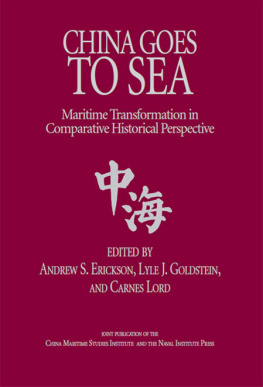

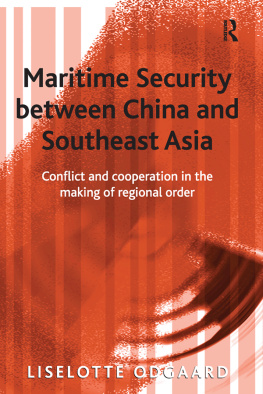
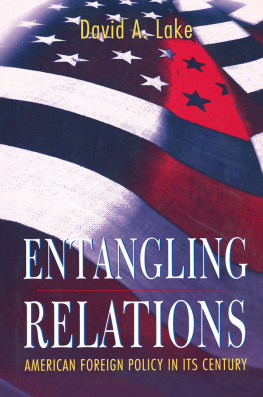
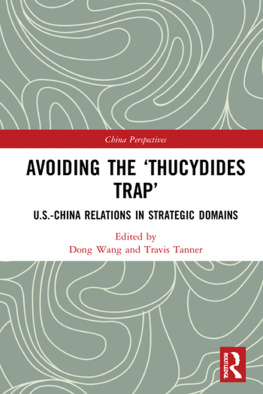
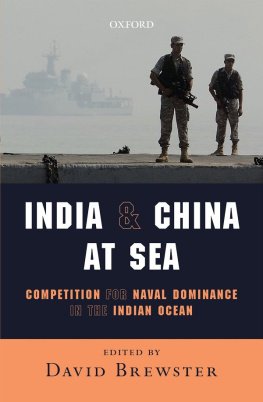
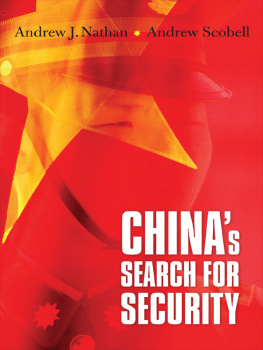
 This paper meets the requirements of ANSI/NISO z39.48-1992 (Permanence of Paper).
This paper meets the requirements of ANSI/NISO z39.48-1992 (Permanence of Paper). , AHH 866). CNO Rougheads visit, like that of the four PLA Navy doctors to USNS Comfort, suggests a strong commitment on both sides of the Pacific to seizing opportunities to share best practices and develop new areas for cooperation in support of global development and security. As the first of what will reportedly be annual international deployments, Peace Ark is slated to call on ports in the Middle East and Africa in 2010.
, AHH 866). CNO Rougheads visit, like that of the four PLA Navy doctors to USNS Comfort, suggests a strong commitment on both sides of the Pacific to seizing opportunities to share best practices and develop new areas for cooperation in support of global development and security. As the first of what will reportedly be annual international deployments, Peace Ark is slated to call on ports in the Middle East and Africa in 2010.